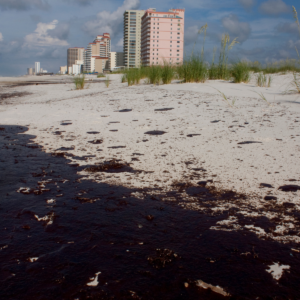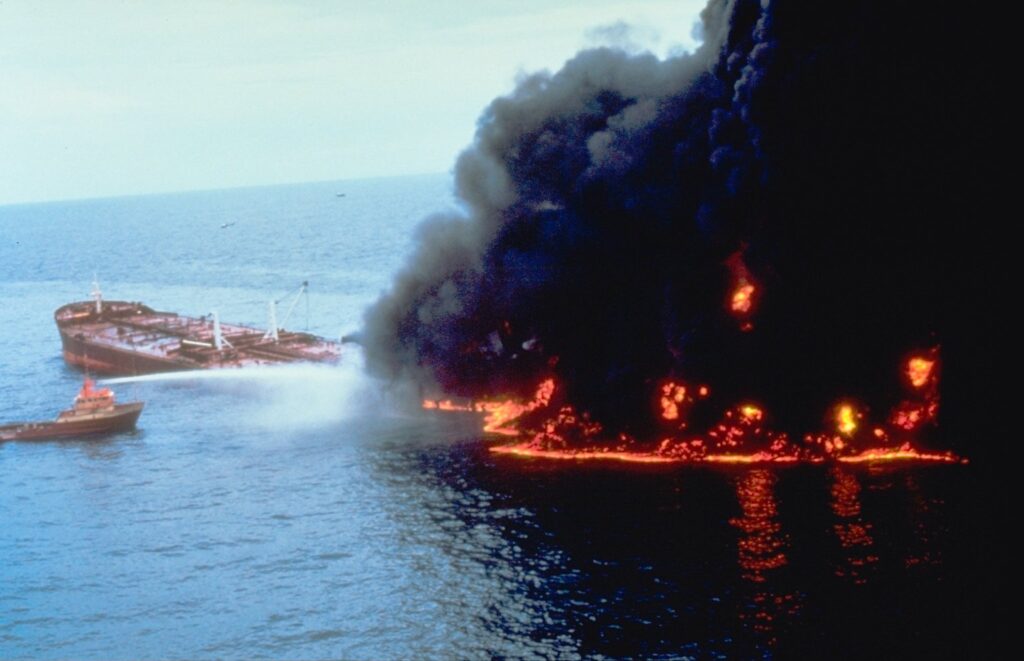Eradicate Oil Spills Naturally and Efficiently
 Oil spills, whether on land or water, pose significant environmental challenges. The natural degradation process of hydrocarbons can be slow, but with the introduction of Ultra-Archaea, this process is accelerated. Ultra-Archaea comprises a collection of over a hundred different species of microbes, specifically cultivated to consume hydrocarbons. These microbes are derived from rugged environments, ensuring their resilience and effectiveness.
Oil spills, whether on land or water, pose significant environmental challenges. The natural degradation process of hydrocarbons can be slow, but with the introduction of Ultra-Archaea, this process is accelerated. Ultra-Archaea comprises a collection of over a hundred different species of microbes, specifically cultivated to consume hydrocarbons. These microbes are derived from rugged environments, ensuring their resilience and effectiveness.
Upon contact with an oil spill, Ultra-Archaea begins its work by digesting hydrocarbon molecules. This digestion process breaks down the hydrocarbons into harmless byproducts, primarily carbon, carbon dioxide, and lipids. These lipids, being a natural and soluble fatty material, serve as nourishment for aquatic life, ensuring that the remediation process is not only effective but also environmentally beneficial.
The potency of Ultra-Archaea is evident in its rapid reproduction rate. When introduced to a contaminated area, these microbes can reproduce from billions per gram to trillions within hours. This exponential growth ensures a swift and comprehensive coverage of the affected area, leading to faster bioremediation.
Another advantage of Ultra-Archaea is its adaptability. While it thrives in the presence of water, oxygen, and hydrocarbons, it also has a natural lifecycle that ensures balance in the environment. After completing their remediation task, and when deprived of essential resources, the microbe colonies naturally diminish, allowing the indigenous microbial population to return to its pre-contamination levels.
Ultra-Archaea® and the Mega Borg Oil Spill
 The Mega Borg oil spill was a significant maritime disaster that occurred in the Gulf of Mexico on June 8, 1990. Situated roughly 50 miles off the Texas coast, the oil tanker Mega Borg experienced a catastrophic explosion in its cargo room. This explosion led to a massive fire that raged for eight days, causing the ship to leak a considerable amount of oil. The incident was further exacerbated by subsequent explosions two days after the initial blast, which significantly increased the rate of oil spillage into the surrounding waters.
The Mega Borg oil spill was a significant maritime disaster that occurred in the Gulf of Mexico on June 8, 1990. Situated roughly 50 miles off the Texas coast, the oil tanker Mega Borg experienced a catastrophic explosion in its cargo room. This explosion led to a massive fire that raged for eight days, causing the ship to leak a considerable amount of oil. The incident was further exacerbated by subsequent explosions two days after the initial blast, which significantly increased the rate of oil spillage into the surrounding waters.
In response to this environmental crisis, innovative cleanup measures were employed. Among the methods used was the introduction of “Ultra-Microbes,” now known as Ultra-Archaea. These microbes were released over the oil slick, marking one of the first practical uses of bioremediation in an open ocean scenario. The Ultra-Archaea microbes played a crucial role in breaking down the oil by consuming it. This process transformed the hydrocarbons in the oil into more benign byproducts, significantly aiding in the mitigation of the spill’s environmental impact.
The Mega Borg incident, while a tragic event, showcased the potential of bioremediation techniques in addressing large-scale oil spills. The successful deployment of Ultra-Archaea highlighted its effectiveness as a natural and efficient solution for environmental restoration following such disasters.